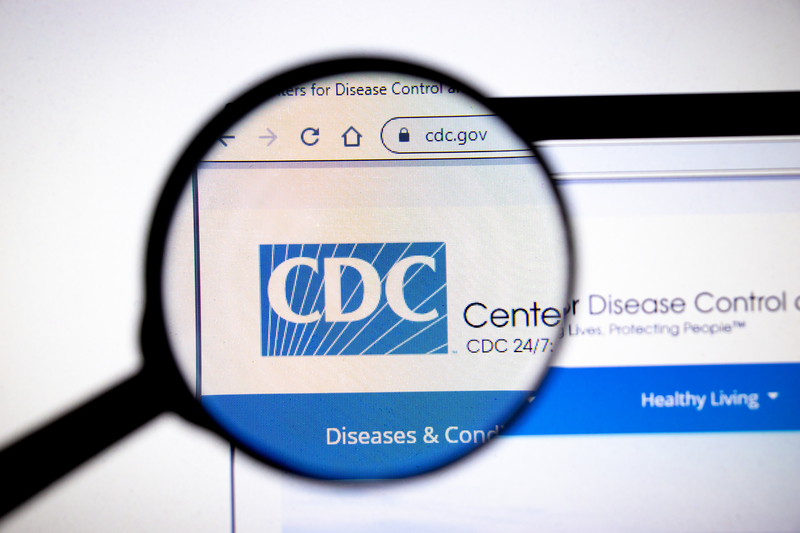
Many nurses can tell from a single glance if their patients are feeling happy, sad, or depressed. For those silently struggling, especially people of color, person-centered care for minority patients can be the key to addressing mental health needs with respect and understanding.
Many nurses can tell from a single glance if their patients are feeling happy, sad, or depressed. Sometimes patients can come in while silently struggling with their mental health and don’t know how to ask for help.
Even if you’re not a mental health nurse, you can be there to support a patient when they’re in a rough place, especially for minority patients. People of color are less likely to seek mental health care due to challenges such as stigma, a lack of lived experience from providers, or being unaware of available services.
Supporting minority patients who require additional assistance can be challenging and complex to navigate. However, there are ways you can help them and provide them with the necessary emotional space to feel comfortable expressing their needs.
Providing Person-centered Care for Patients
Person-centered care means that care is tailored to each individual based on their unique abilities, needs, and preferences. Rather than assuming they know what is best for a patient, nurses who take a person-centered approach will ask patients what they need, based on their physical, mental, and social preferences.
Using this type of care helps all patients feel empowered to take control of their health, including patients of color and elderly individuals. Person-centered care comes with more benefits than traditional care, and is shown to reduce symptoms of agitation and depression in one study involving patients with dementia.
Since this method of care is directed by the patient, minority patients can take the lead and ensure that nurses consider their beliefs, values, and identity. When patients know they are being respected and treated well, they’re more likely to trust their care team regarding issues that impact their quality of life.
Create a Safe, Comforting Space
Patients struggling with their mental health can feel even more out of place when they go to the doctor or hospital. They may feel on edge or nervous about possibly receiving bad news when they’re already in an anxious state.
As a nurse, you have the power to reassure them and address their needs. Suppose you notice that a patient is nervous or uneasy before an exam or procedure. In that case, you can assist them by listening to what they’re worried about or asking them if they need anything to help them feel more comfortable.
Anxious patients can feel relaxed when you make these simple gestures. You may not be able to make them feel completely okay, but you can be that intermediary if they want to ask for help.
Depending on a nurse’s role in their job, it’s easier to identify if a patient needs mental healthcare when they’re an elderly patient at a long-term facility versus a healthy patient stopping in for a routine checkup. But you can still make a slight difference in a patient’s day, no matter how much time you spend with them.
Assisting Patients When They Ask for Psychological Help
When patients trust you enough to ask for emotional or psychological help, you can provide them with the care they’re seeking by acknowledging their concerns and ensuring they receive the mental healthcare they need.
As a nurse, it’s not your role to provide direct counseling, unless you’re a psychiatric nurse or someone who’s licensed to provide therapy. However, you can make sure they receive the necessary treatment and referrals before they leave.
Discuss with their care team what is best for them, based on what you have been told. It could be that they need therapy, psychiatric services, or other resources due to a physical issue that’s impacting their mental health. The most important part is to listen to what your patient is saying so that you can direct them to the right avenues for quality care.
Sometimes, patients can come in for a separate issue, but then you find out that they’re dealing with an invisible illness that’s not always detectable. Providing patient-centered, holistic care and communicating openly with your patients can give them the comfort they need in knowing that they’re not alone.
Karie Pinnix is a public relations strategist and freelance journalist with experience writing content for print and broadcast platforms and creating branding development with start-up companies. She’s written about topics like college nightlife, community organizations in Mississippi, and the nurse shortage during the COVID-19 pandemic. When she’s not working, you can find her exploring nature, catching up on reading, or traveling to the nearest beach.
Also Read: Your Child’s Doctor May Now Recommend Covid Shots – Here’s Why
Trending Topics
Features
- Drive Toolkit
Download and distribute powerful vaccination QI resources for your community.
- Health Champions
Sign up now to support health equity and sustainable health outcomes in your community.
- Cancer Early Detection
MCED tests use a simple blood draw to screen for many kinds of cancer at once.
- PR
FYHN is a bridge connecting health information providers to BIPOC communities in a trusted environment.
- Medicare
Discover an honest look at our Medicare system.
- Alliance for Representative Clinical Trials
ARC was launched to create a network of community clinicians to diversify and bring clinical trials to communities of color and other communities that have been underrepresented.
- Reducing Patient Risk
The single most important purpose of our healthcare system is to reduce patient risk for an acute event.
- Subash Kafle
- Subash Kafle
- Jessica Wilson


















